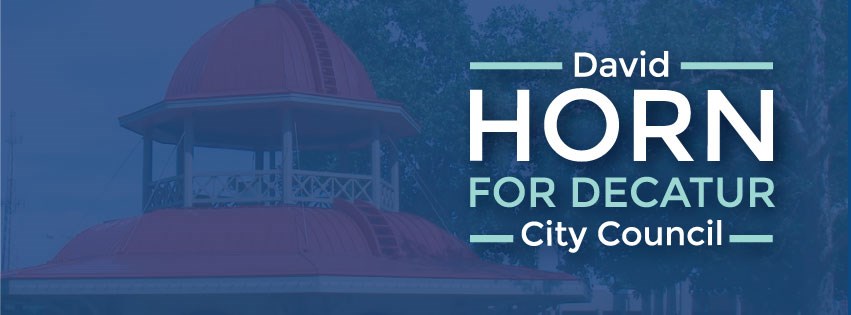
Decatur's long-term water sustainability plan falls short
The City of Decatur commissioned three reports that collectively are to serve as the foundation for making decisions about the city’s water supply, water treatment, water distribution, and watershed management for the next 30 years. Unfortunately, incorrect assumptions and lack of synthesis among reports creates a plan that creates significant expense for Decatur residents while not addressing our most important needs. On July 12 at 5:30 PM, the Decatur City Council will have a study session to discuss two of the reports: 1) “Long-Term Sustainability Plan” by CDM Smith published in May 2021 and 2) “Additional Water-Supplies: Local Solutions to Manage Drought Risk” by INTERA published in November 2019. A third report “Lake Decatur Watershed Management Plan & Initiative" by Northwater Consulting published in April 2021 was discussed as part of a study session on May 10, 2021. Below I discuss two key challenges with the reports.
LONG-TERM SUSTAINABILITY PLAN INCORRECTLY ASSUMES SEDIMENT IS NOT SETTLING IN LAKE DECATUR
According to the report charged with identifying long-term water supplies (Intera, p. 33): “In all water-supply calculations, we have assumed that the existing sediment traps will be maintained by dredging as they fill with sediment, and that the traps protect the lake from excess sedimentation.” However, this assumption is incorrect. The watershed management plan (Northwater, p. 1), states that “On an annual basis, approximately $1M of sediment (based on dredging costs) enters the lake” and it is unclear that the sediment traps will retain the sediment before it reaches Lake Decatur. Furthermore, the watershed plan states “A minimum investment of $20M will achieve significant results (in reducing the amount of sediment in Lake Decatur) over the next six years …” Thus, funding is needed to remove sediment that settles in Lake Decatur in order to preserve lake volumes at post-dredging levels. However, the capital improvements plan (CDM Smith, p. 8-3 – 8-5) prepared as part of the long-term sustainability plan does not include the $20 million needed to preserve lake volume levels. The report does, however, include $24 million for sediment trap maintenance.
POST-DREDGING, THE CITY OF DECATUR HAS ENOUGH POTABLE WATER FOR A 10-MONTH DROUGHT. ADDITIONAL WATER SUPPLIES ARE NECESSARY TO MEET RAW WATER NEEDS.
The City of Decatur categorizes water users into 5 groups: residential (use 13% of water from Lake Decatur, provide 29% of water revenue), commercial (use 10%, revenue 19%), government (use 2%, revenue 3%), industrial (use 41%, revenue 43%), and raw water (use 34%, revenue 7%) (based on 2017 data; ADM Co. is the only current raw water user). Raw water is obtained from Lake Decatur at ADM Co.’s North Water Treatment Plant whereas potable water is obtained by Decatur’s South Water Treatment Plant. In the event, of a significant drought, the city can lower the operating pool of Lake Decatur from 607 ft. to 604 ft. and take advantage of the additional water storage created by the dredging. However, operations at ADM Co.’s treatment plant will be interrupted if the lake level dips below 607 ft. As stated in the Intera report (p. 131), “Consultation and coordination with ADM is necessary to understand ADM’s tolerance for the risk of water supply interruption and to identify possible options to adequately mitigate those risks. This question is critical to the City’s water supply decision-making and implementation.” To date, this consultation and coordination has not involved the city council. However, the long-term sustainability plan (CDM Smith, p. 8-3 – 8-5) recommends spending approximately $25.3 million in additional water supply options that the city may not need depending on ADM Co.’s risk tolerance.
LONG-TERM WATER SUSTANABILITY PLAN NEEDS GREATER STAKEHOLDER ENGAGEMENT
The watershed management, additional water supply, and long-term sustainability plans collectively provide a good starting point for discussing the city’s water needs for the next 30 years. However, additional synthesis of the reports and formal discussions with current and future raw water users are necessary before a formal long-term water sustainability plan should be adopted and implemented by the city council.
CITIZENS ARE ENCOURAGED TO PROVIDE FEEDBACK TO CITY COUNCIL MEMBERS
If you would like to discuss city issues with a council member, phone numbers and email addresses for each council member can be found at the following link: https://www.decaturil.gov/mayor-and-council/council/.
PLEASE EXPRESS YOUR VIEWS AT CITY COUNCIL MEETINGS
Meetings take place at the council chambers located on the third floor of the Decatur Civic Center (1 Gary K. Anderson Place). Free parking is available in the lot immediately south of the entrance. Citizens are encouraged to attend meetings and express their views. Citizens are allotted 3 minutes per person after council discussion of the study session topics.
AGENDAS FOR CITY COUNCIL MEETINGS ARE AVAILABLE ONLINE
An agenda and information about each agenda item for each city council meeting can be found at: https://www.decaturil.gov/mayor-and-council/council-meetings/.
